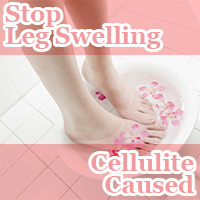
Think about scheduling an appointment with a nutritionist to adopt a diet low in sodium. It’s best to introduce gentle diuretics into your diet instead of increasing your caffeine intake. While tea and coffee can have a diuretic effect, drinking these beverages can lead to your body retaining fluids to prevent dehydration. Try eating more fresh fruits and vegetables, nuts, and whole grains.įoods like watermelon, grapes, cucumber, onions, and bell peppers can have a mild diuretic effect that will help eliminate fluids. Stay away from processed foods and snacks as much as possible. Foods like bread, pizza, cold cuts, soups, chips, cheese, and even eggs make up most of your sodium intake. You can limit fluid retention by lowering your sodium intake.Īs a rule of thumb, processed foods have more sodium. Hold this position for a few seconds before lowering your leg slowly.Ī diet rich in sodium can cause edema and lead to fluid pooling in your legs and other body parts.
#LEG FLUID RETENTION SKIN#
It might seem like water is leaking from your legs, but your skin is leaking lymphatic fluid, fluid in your tissues that has a crucial role in eliminating waste, helping you absorb nutrients, and fighting infections.Ī leg leaking water often results from edema, but this condition can appear due to liver disease, blood clots, or chronic venous insufficiency.

Leaking legs, a condition also known as lymphorrhoea, causes fluid to leak from the legs.

Careers Pay Now Referring Providers (301) 486-4690 Main navigation


 0 kommentar(er)
0 kommentar(er)
